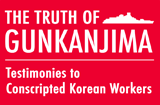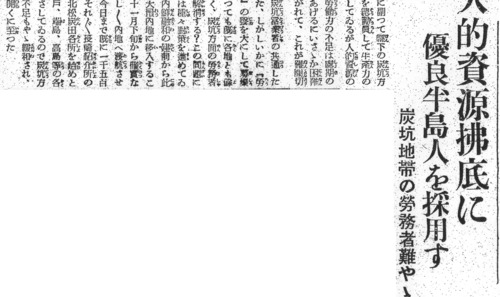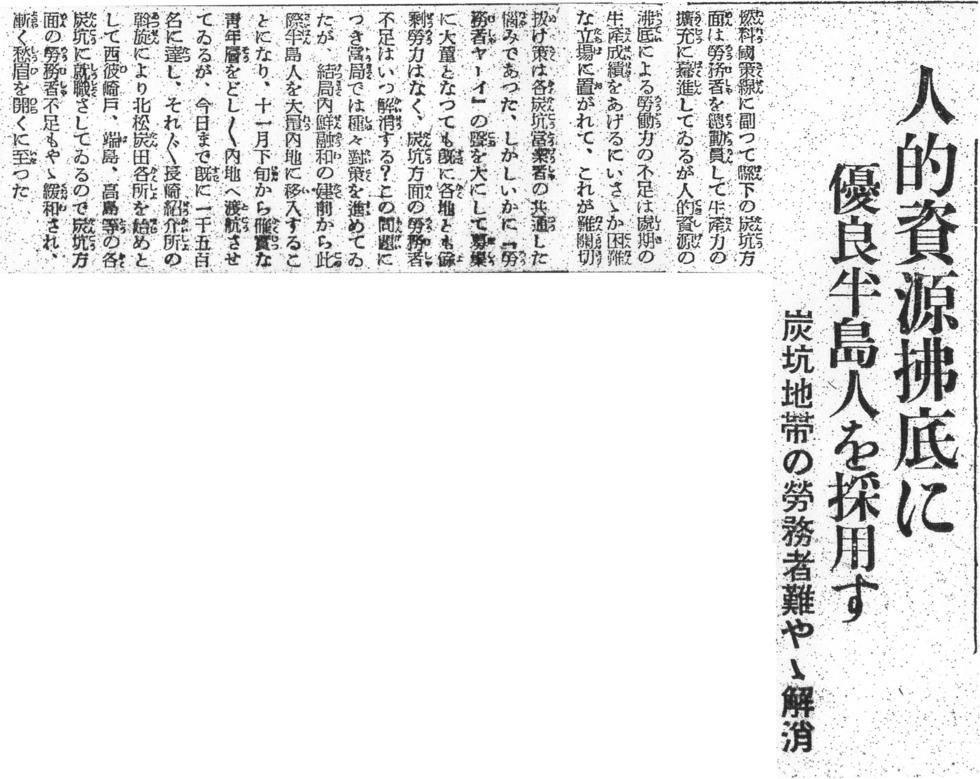Outstanding Workers from Korean Peninsula to be Hired to Meet Human Resource Needs
December 9, 1939 (Showa 14)
Nagasaki Nichi-nichi Shimbun
Large numbers of Korean laborers were brought to the Japanese homeland for the purposes of promoting Japan-Korea harmonization and for easing the labor shortage in mines. Beginning in late November, young workers were relocated to Japan. The Nagasaki Employment Office placed 1,500 workers in such mines as Kitamatsu, Sakito, Takashima and Hashima.
Nagasaki Nichi-nichi Shimbun (December 9, 1938 [Showa 14])
Authorship:
Nagasaki Nichi-nichi Shimbun: Newspaper
- Author
Page 1
Outstanding Workers from Korean Peninsula
Hired to Meet Human Resource Needs
Shortage of Workers in Mining Regions Slightly Eased
Coalmines in Nagasaki Prefecture have been employing all available labor to expand output in line with the national policy on fuel and energy. A common problem among coalmines however has been the shortage of labor brought on by the general mobilization of human resources. This has made it increasingly difficult to meet production goals. No matter how loud recruiters raise their voices of “Come all workers!,” recruitment has its limits because all surplus labor throughout the country has already been exhausted. When can we hope to solve the labor shortage in coalmines? Government authorities have been pursuing various measures to address this problem. Recently, the decision was made to transfer laborers from the Korean peninsula in line with the principle of “Japan-Korea harmonization.” Since late November, large numbers of reliable young people are being transferred to the Japanese homeland. The number of transferees has already reached 1,500. Through the intermediation of the Nagasaki Employment Office, these young workers have been deployed to ease the labor shortage in coalmines throughout the Kitamatsu coalfield, as well as in the coalmines of Seihi-Sakito, Hashima and Takashima. A sigh of relief is being heard in the coalmines.
(December 9, Showa 14 [1939])



